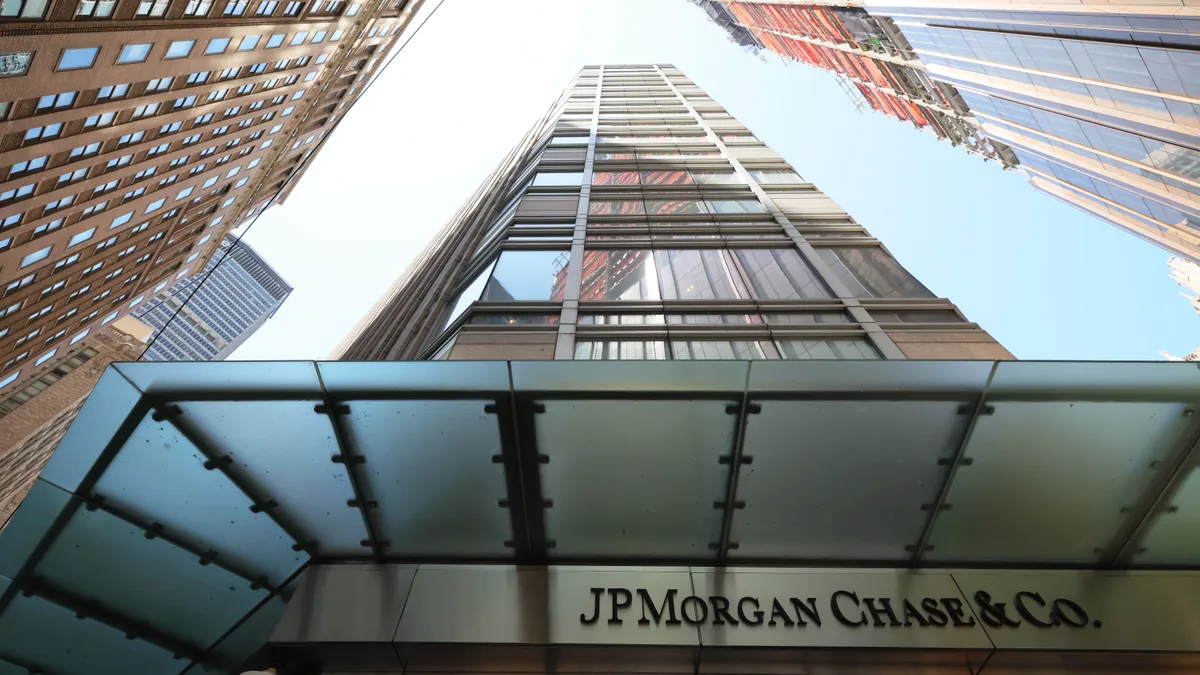Banks such as JPMorgan Chase, UBS, Deutsche Bank and Nomura saw disruptions Friday amid a massive IT outage tied to a defective software update from tech company CrowdStrike.
Employees at JPMorgan and the Japanese bank Nomura, for example, had trouble accessing their work stations — in some cases, leading to delays in trading, The New York Times reported, citing people with knowledge of the matter.
JPMorgan told some buy-side clients it was unable to process certain trades, according to Bloomberg. The bank switched to its backup server, but many Hong Kong-based staffers left to work from home for the rest of the day, the wire service reported.
Similarly, some of Nomura’s trading desks were disrupted, but the bank diverted some trades to PCs that were operating, Bloomberg reported.
“People can trade but [there’s] limited upside unless it’s vital,” a senior trader told the Financial Times. “Traders need to be confident that the data they are trading off is accurate.”
Brokerage Charles Schwab sent a message through its app, telling account holders: “Please do not place trades twice, as duplicate trades may be created.”
“We’re actively working with the vendor to resolve the issue,” the brokerage said in the message, seen by CNBC. “Phone services may be disrupted and hold times may be longer than usual.”
In a post on the social media site X, Schwab said “certain online functionality may be intermittently slow or unavailable.”
UBS saw problems related to legacy systems acquired in the takeover of Credit Suisse, according to the Financial Times. Those were resolved by early afternoon in Europe, the publication reported.
Deutsche Bank, meanwhile, said its research portal was affected, and that some research reports are still awaiting publication and distribution, according to Bloomberg.
“We understand the gravity of the situation and are deeply sorry for the inconvenience and disruption,” CrowdStrike CEO George Kurtz said in an emailed statement seen by Cybersecurity Dive. “We are working with all impacted customers to ensure that systems are back up and they can deliver the services their customers are counting on.”
Kurtz added that the incident was not related to a cyberattack or other security incident and the issue had been identified, isolated and a fix had been deployed.
Still, not everyone in the finance sector saw ripple effects.
“Critical Federal Reserve Systems are operating normally,” the central bank said in a statement to CNBC. “We are monitoring the situation and working closely with industry and other government agencies to assess the situation.”
Trading on the London Stock Exchange was running normally, but the exchange’s news service, which U.K. companies use to make regulatory announcements, faced an issue that prevented news from being published on its website, the Financial Times and Bloomberg reported. That problem was later resolved.
“We are aware of the issue,” the U.K.’s Financial Conduct Authority told Bloomberg in an emailed statement, adding that it’s working with individual firms.
The Bank of England, meanwhile, is “monitoring the situation closely and continuing to engage with firms and other authorities,” it said in a statement. “There is no impact on the Bank’s systems.”
The bulk of the issues occurred before markets opened in the U.S. Representatives for the New York Stock Exchange and Nasdaq told The New York Times that trading on both venues was expected to operate normally.
Monsur Hussain, head of financial institutions research at Fitch Ratings, pointed to the industry’s reliance on outside sources, in a statement to Bloomberg.
“Financial institutions’ dependencies on third parties has grown in recent years,” Hussain said. “The economies of scale are compelling, but they can also bring systemic risks.”















